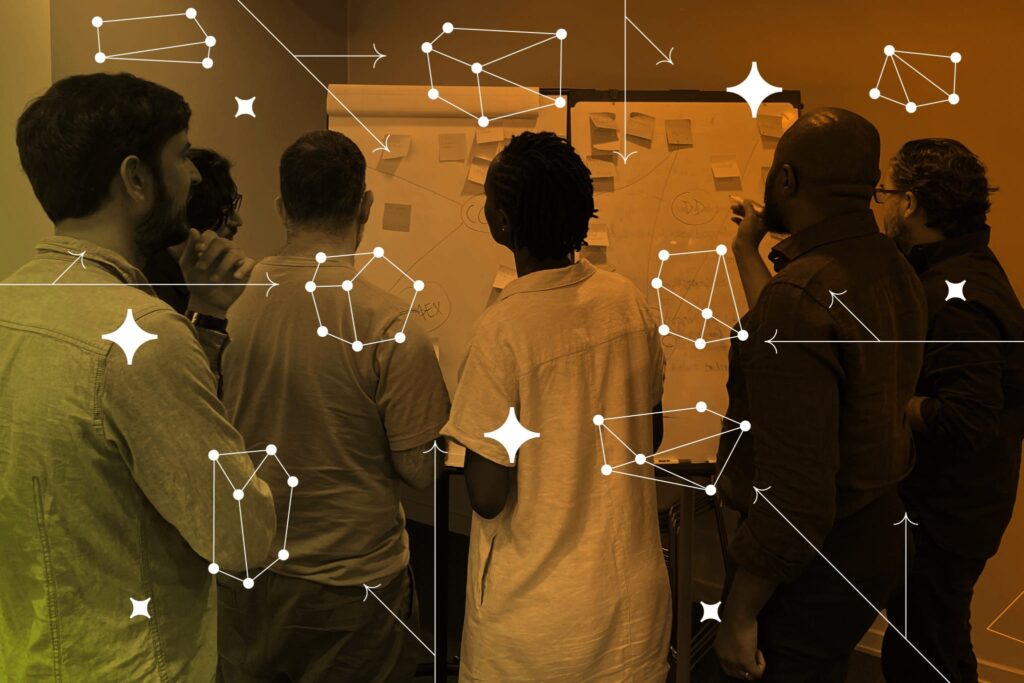The Global Network for Social Justice and Digital Resilience (DRN) is pleased to share a new report titled Pulse 2025, The Trump Effect on Digital Resilience in the Global Majority. This brief explores the most recent changes in the ecosystem and analyzes the evolution of the geopolitical, technological, and activism trends presented previously in the Scanning the Horizon (2024) report, from a Global Majority perspective.
Following the first six months of the Trump administration, the DRN report zooms in on these topics to highlight the main challenges the digital resilience ecosystem will need to address over the next decade, as well as to identify possible interventions and opportunities for action. The analysis shows that most trends reviewed in the Scanning the Horizon (2024) report are accelerating:
- On the geopolitical pulse, there is more nationalism while multilateral negotiations are replaced by bilateral agreements among government leaders. As Trump undermines interest in human rights frameworks, how should civil society organizations react? Read about the possible answers and strategies addressed in the brief in section III. (GEO) POLITICAL PULSE: MORE NATIONALISM.
- On the tech pulse, the focus moves to the chips & energy corporations due to the AI-boom. These are highly regulated sectors, allowing governments to exercise their power. In this context, tech sovereignty is a must for nations; could this be a vehicle to advance digital rights and resilience? Know more about the pros and cons of embracing the tech sovereignty agenda in section IV. TECH PULSE: FOCUS MOVES TO NETWORK CHOKEPOINTS → CHIPS & ENERGY.
- The activism pulse faces challenges as there is less focus on consumers and also less access to debate. The shifts in funder agendas, and the difficulties to access funding are critical threats for the digital resilience ecosystem. As growing nationalism shifts the attention to trade, national security, and industrial policy, there is also a move of power away from individuals and collectives towards national needs. If the civil society model is being pressured by a business-to-business dynamic, undermining the traditional role of civil society organizations, what new strategies and approaches are needed? Read more about this in section V. ACTIVISM PULSE: LESS FOCUS ON CONSUMERS. LESS ACCESS TO DEBATE.
To explore some of these issues, the executive directors of DRN member organizations met in Oslo, Norway, from June 30th to July 1st, 2025 at a Strategy & Leadership Retreat. They worked on agreements to develop a joint action plan to address the main threats that the digital resilience ecosystem is facing. The Network members are strongly committed to South-to-South collaboration to create more fair and inclusive digital spaces in their regional and local contexts. With this new report, the DRN aims to open the discussion with policy makers, researchers, funders, and civil society organizations to enrich strategies and build collective solutions to raising challenges, from a Global Majority perspective.
If you are interested to know more, want to get in touch to talk about potential collaborations or participate in future discussions on these topics, please email us at hello@digitalresilience.network.
Share this post
